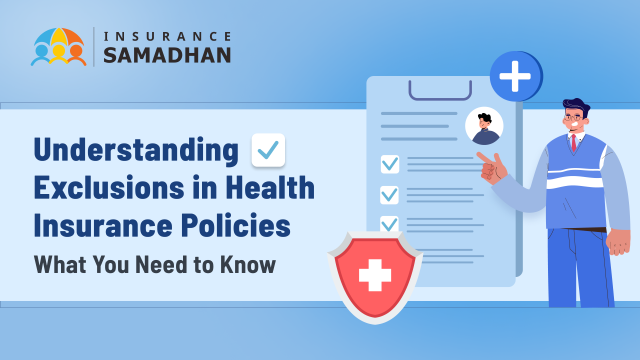
Understanding Health Insurance Exemptions and Exceptions
Health insurance can feel like a maze, especially when it comes to knowing what is required and what is optional. Many people assume that everyone must purchase health insurance to avoid fines, but that’s not always the case.
There are health insurance exemptions and exceptions that can excuse you from this requirement without facing a penalty. Understanding these can help you make informed decisions about your health coverage.
What Are Health Insurance Exemptions?
Exemptions allow certain individuals to avoid buying health insurance for a year without being penalized. The government sets specific rules for these exemptions, usually based on factors like income, personal situations, or religious beliefs. By qualifying for an exemption, you can legally remain uninsured without facing financial penalties at tax time.
Common Types of Exemptions
Here are some of the most common exemptions you may qualify for:
- Financial Hardship
If paying for health insurance would cause financial strain, you might be eligible for a hardship exemption. This applies if the lowest-cost insurance plan available costs more than 8% of your household income. - Short Coverage Gaps
Life can be unpredictable, and you might find yourself uninsured for a brief time. Fortunately, if you were without health insurance for less than three months, you qualify for the short coverage gap exemption. - Religious Objections
Certain religious groups reject health insurance due to their beliefs. If your religious convictions prevent you from purchasing health insurance, you can apply for a religious exemption. - Ineligible for Medicaid but Can’t Afford Insurance
If your income is too high for Medicaid but too low to afford marketplace health insurance, you may qualify for an exemption. This is especially important for people in states that have not expanded Medicaid coverage, where some fall into a “coverage gap.” - Living Abroad
If you live outside the United States for at least 330 days during the year, you won’t need to have health insurance. This is known as the “foreign income exemption,” and it applies to people who live abroad or travel frequently for long periods. - Incarceration
People who are incarcerated for any length of time may also be exempt from needing to have health insurance. Once released, they would need to enroll in a plan.
Read Also: Creating Engaging Experiences with LED Trucks in Atlanta
What Are Health Insurance Exceptions?
Unlike exemptions, which let you avoid insurance for a full year, exceptions are special circumstances that let you temporarily go without coverage or reduce penalties. These exceptions usually apply during short periods when coverage isn’t possible or necessary.
For instance:
- Waiting Period for Medicaid or CHIP
If you’re waiting for Medicaid or Children’s Health Insurance Program (CHIP) coverage to begin, you won’t face penalties during that period. Sometimes applications take a while to be approved, and this waiting period exception protects you from fines. - Sudden Health Issues
In some cases, a sudden health event or medical condition may qualify you for an exception. These situations are generally handled on a case-by-case basis but can protect you from penalties while managing a health emergency. - Emergency Situations
Natural disasters, accidents, or other emergencies might also lead to exceptions. If your situation makes it impossible to obtain coverage, the government may allow exceptions for the time you’re unable to apply.
How to Apply for Exemptions and Exceptions
Applying for an exemption or exception is usually done when you file your taxes. Some exemptions, such as short coverage gaps, are automatic. However, others—like financial hardship or religious objections—require you to submit proof. It’s essential to keep any paperwork that explains your exemption situation, as the IRS may request documentation during a review.
For most exemptions, you will need to fill out a form and send it to the marketplace or claim it directly on your tax return. The forms can usually be found on the healthcare.gov website or through your state’s marketplace.
Marketplace Health Insurance 2025: What to Expect
As we move toward 2025, health insurance through the marketplace continues to be an option for many. Marketplace health insurance 2025 plans are designed to provide coverage for individuals and families who do not receive insurance through an employer.
The plans offer essential health benefits and protect against high medical costs. However, if you can’t afford a marketplace plan, exemptions and exceptions remain key in helping you avoid penalties.
Conclusion: Know Your Rights and Options
Health insurance is essential for many, but not everyone is required to have it. Exemptions and exceptions are built into the system to accommodate people with unique circumstances. Whether you’re facing financial hardship, a temporary gap in coverage, or a sudden life change, understanding these options can prevent penalties.




